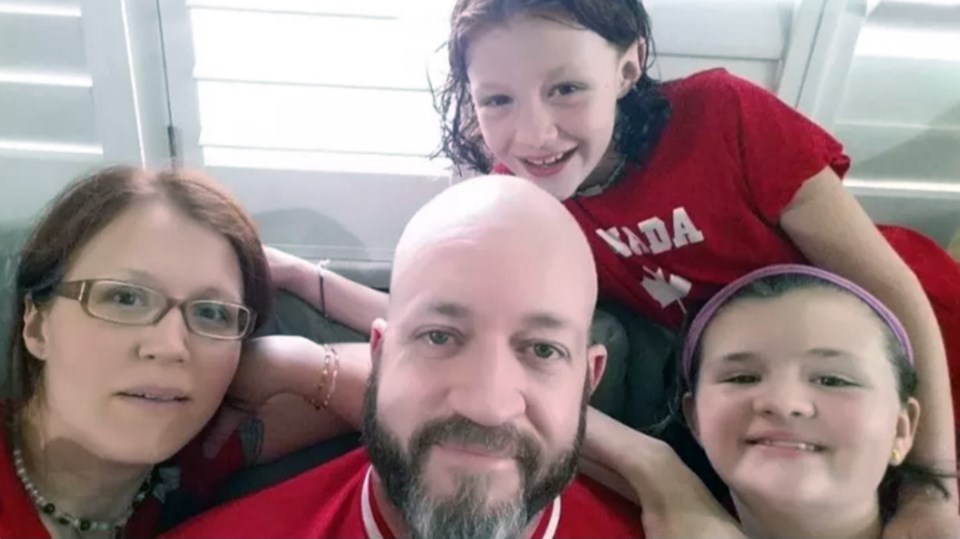Jeremy Franta is literally fighting for his life every single day and he just wishes he was supported by better COVID safety guidelines.
It was back in 2016 when the now 50-year-old Ladner father of two was diagnosed with multiple myeloma, an incurable blood cancer.
He was initially given just three to five years to live, but has pushed beyond that while undergoing non-stop chemotherapy and stem cell treatment with a positive outlook.
“I don’t dwell on treatments. I look forward to the next barbecue or day trip. I really love life and I don’t want to die,” he said.
Being immunocompromised has resulted in also dealing with a high-level of anxiety for the past two years in fear of being struck by COVID-19. His family is doing everything to provide the safest possible environment, including his daughters staying home and doing their school work online.
He just wishes, however, that the provincial government was doing more.
“Unfortunately, I am one of the ‘select’ group in British Columbia of approximately 15,000 plus of extremely vulnerable persons. There are another 350,000 clinically vulnerable, 900,000 over the age of 65 and 173,000 youth under the age of five, also considered most vulnerable to COVID-19 sickness,” explained Franta. “This accounts for 25 percent of sa国际传媒’s population, not including their countless friends and family and all the amazing health workers who stand by their sides.
“We are left to fend for ourselves in the pandemic without the tools to do so. It is clear a huge group of British Columbians being left behind who are way more susceptible to greater risk of death, sickness than the leaders of the province wish you to believe.”
Franta’s concerns includes the ban of N95 masks in hospital settings. He encounters this every time he makes a trip to Vancouver General Hospital for treatment where he can only wear a medical grade surgical mask that is provided by the hospital.
“Seriously, can you believe a terminally ill patient is asked to change a far superior N95 mask to a surgical mask at the front of the hospital where every person in the whole place walks through?” continued Franta.
Vancouver Coastal Health (VCH) says it’s been consistent in its approach to PPE, aligning strongly with the most current provincial guidance.
“Staff and visitors at all VCH sites are provided with medical grade surgical masks that have been tested and validated for performance requirements including bacterial filtration efficiency with a minimum 95 per cent filtration rate, particulate filtration efficiency, fluid resistance and pressure differential. Proper donning and doffing protocol is in place at all VCH sites, and they must be worn in all clinical settings,” VCH in a response to the Optimist’s inquires. “Poorly fitted or poor-quality respirators — including many of the brands sold to consumers online — do not meet the Infection Prevention and Control standards in place at Vancouver Coastal Health (VCH) health-care sites, including our immunization clinics and hospitals.”
VCH did add it will not turn people away if they are uncomfortable removing their own mask, provided they are in compliance with public heath masking orders for indoor spaces.
Franta says that’s not enough.
After nearly two years of hospital visits amid COVID, he admits he has found ways to work around the rules, including wearing a medical grade mask, on top of his N95 when he arrives for his appointments, however, he says many of the vulnerable won’t make the same kind of effort.
“You find a way to trick the system and find a way to make shortcuts, but now I’m speaking for a lot of people that don't even bother going through that effort. I’m trying to make difference,” he said.

